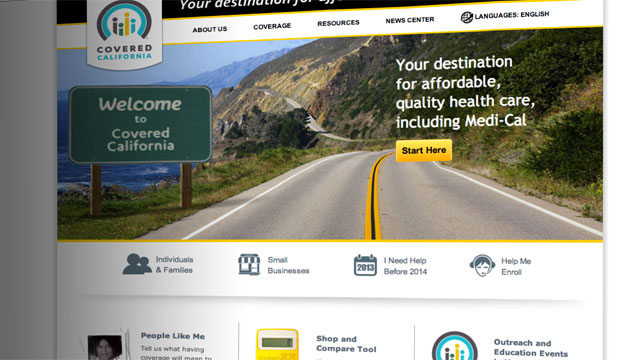Anyone who signs up by March 31 will not be penalized.
2. What Is a 'Household'? Subsidies are calculated according to household income -- that's "household" according to your tax filing status. For example, if you declare your adult son as a dependent, he then must declare your income if he is applying for a subsidy on Covered California. Conversely, if you live with your adult daughter, but neither claims the other as a dependent, then you would both apply separately -- and according to your individual incomes -- on Covered California.
3. Signing Up in Person: In addition to the online option for sign up on CoveredCA.com, you can also enroll in person in one of three ways:
Certified Insurance Agent -- these are insurance brokers who are specifically trained in Covered California plans. You do not pay for their services. Insurance companies pay their commissions.
Certified Enrollment Counselors -- these people are often affiliated with a community group, and they too have been trained in Covered California plans.
County Human Services Agencies -- these are county staff who can help you.
I've haven't heard from many people who have signed up in a county office. But I have heard from people who come down pro or con on both agents and certified counselors. Certified Insurance Agents say they are the professionals, they are best positioned to help you, that counselors cannot possibly have the degree of professional experience they do. Certified Enrollment Counselors say agents don't know the communities on the ground, and they are better suited to educate and enroll people who are uninsured.
In any case, you can pick for yourself. Visit this Covered California site to find help near you.
Alternatively, you can go to a sign up "event" -- where there will be many people helping and many people trying to enroll. There are many of them, across the state, leading up to the deadline.
4. I Make Too Much Money to Qualify for A Subsidy -- Must I Use Covered California? In short, no. You can visit any health insurance broker, you can call any plan directly to see what choices they have for you, or you can use a private online exchange, such as ehealthinsurance.com
But note well -- if your income fluctuates, say, declines enough for you to qualify for a subsidy later in the year -- then you must be enrolled in a Covered California plan now.
You can adjust your income up or down any time during the year by logging on to your Covered California account and making the change. Your subsidy will be adjusted from there.
5. What Happens if I Lose My Job -- and My Insurance? Loss of a job is a "qualifying life event," which triggers a "special enrollment period." Other qualifying events include marriage or birth (or adoption) of a child. The special enrollment period extends 60 days starting from the date of the event.
If you have other questions, be sure to check KQED's Obamacare Guide -- Just for Californians.
[contextly_auto_sidebar id="MJSddLLxazSICVAOPpt1WhodRl6y51ui"]
